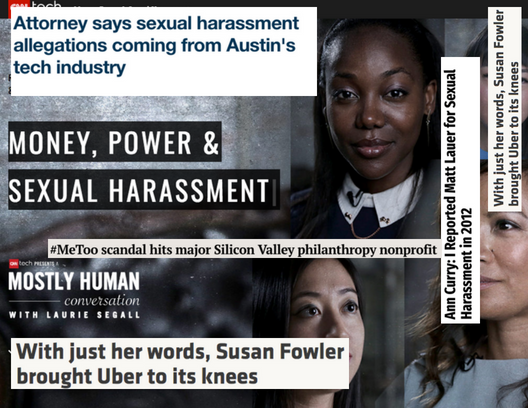The Importance of Employment Practices for Tech Startups…
In general, this is one of the heavier topics we will cover, but I felt it was necessary given the recent headlines involving Travis Kalanick of Uber, Dave McClure of 500 Startups and Justin Caldbeck of Binary Capital. The mainstream news outlets are in no shortage of stories highlighting the sexual harassment situation in Silicon Valley. This month’s blog highlights some of the employment related issues in the startup ecosystem and provides helpful tips for employers when it comes to EPLI coverage.
A Problem in the Startup Tech Ecosystem
The headlines speak for themselves, but it’s hard to listen to the personal accounts in this video created by NBC: Women of Silicon Valley, Part 1: Women Share Stories of Alleged Sexual Harassment. A recent survey released by First Round Capital, a Bay area VC firm, claims 50% of the 869 startup founders who participated in the survey had either been a victim of sexual harassment or know someone who has faced this issue in the workplace. In case you were wondering, if this is limited to Silicon Valley, the answer is no. Check out this video from KVUE on Sexual Harassment in Austin’s Tech Community. Awareness is the beginning of a movement in the right direction; however, sexual harassment is not the only employment related problem in the startup ecosystem.
Race, Age, Gender and Retaliation
Do a simple Google search for discrimination in the tech community, and you will find a number of headlines on race, age, gender, etc. What’s even worse is what can happen after the initial violation: retaliation. Despite the Equal Employment Opportunity Commission (EEOC’s) stance on protecting one’s rights in a harassment situation, victims often see retaliation from their employers. Retaliation can come in the form of poor reviews, missed promotions, termination and even being ‘blackballed’ in the tech community. According to the Hiscox Guide, 45.9% of lawsuits claimed retaliation. This means even when a victim comes forward to report an allegation they are punished further via retaliation.
Claims Are Costly
Employment related allegations are costly for startups. According to the 2017 Hiscox Guide to Employee Lawsuits, the average cost of a claim (defense and settlement) is $160k. Not only that but it can also be a huge distraction for the company. Productivity, morale and even the value of a company can go down as a result. So what can startups do about it?
Tips for Startups
Get Support to Prevent Harassment
It is important to make sure your startup has (or gets) effective leadership when it comes to HR. Solid HR teams foster a culture of zero tolerance for discrimination or harassment. For startups that cannot afford an internal HR team, there are resources available such as fractional HR professionals, PEOs (professional employment organization), insurance carriers and legal counsel. All have a vested interest in prevention and would likely be ecstatic to share best practices.
Navigate Regulations and Laws with Solid Legal Counsel
Make sure your company is following the laws and regulations designed to prevent employment related issues. A good employment lawyer can certainly help keep a company out of hot water by reviewing the employee handbook, reporting procedures and company policies tailored by the state. California, for example, is notorious for robust employment regulation. If your startup has employees in California, legal counsel is wise!
Make Sure You Have Employment Practices Liability Insurance (EPLI) Coverage
The first question seasoned HR execs ask when brought onto a new team is what kind of EPLI is in place. For startups this can be included in a Business Owner’s Policy (BOP), management liability policy, or even be provided by your PEO. Step one is to make sure you have some sort of protection in place. Once you know you have it in place, it is time to get granular.
Be Aware of Your Limits, Deductibles and Self-Insured Retentions
Some Business Owner policies can include a small ($10-25K) EPLI limit. Unfortunately, this won’t get too far given the average cost of a claim listed above is $160K so don’t get the false idea that your startup is adequately covered. This number should be reviewed with your agent as a company grows in employee count. Many startups use PEOs and believe they are adequately covered. However, PEOs often have high self-insured retentions. This means a startup may have to write a large check before the insurance carrier will help with a claim. Be sure to ask the PEO service team questions about your policy through your PEO provider.
Ask for 3rd Party Coverage
3rd party coverage is designed to cover claims made by your employees to individuals outside of your organization. This can be big for industries or companies that have to entertain or have face to face client interactions. You have no control over how the people outside of your organization will perceive the actions or words of your employees. Check with your agent or PEO to see if this is available and makes sense to add to your EPLI policy.
In closing, I am thankful for the women who came forward in the interviews to bring awareness to the situation in Silicon Valley and beyond. I’m also thankful for the founders and execs at most of the startups who do it right. I work with solid leaders in the tech community who would never exhibit or tolerate the type of behavior we have seen in the headlines lately. For those founders and co-founders as well as their board: thank you!
—
Lumen Insurance Technologies is a tech-focused commercial insurance agency based in Austin, Texas. Lumen is hyper-focused on providing the technology startup ecosystem with quality commercial insurance coverage (e.g. D&O, E&O, Cyber, etc.) following a funding event and beyond.
Check us out on the web at www.lumeninsure.com to find more blog topics, general info, or to get help with finding coverage. Email us at info@lumeninsure.com if you would like to suggest a topic for future blogs.
Connect with us and stay up to date with news from our client base by following us on LinkedIn, Twitter, and Facebook.

